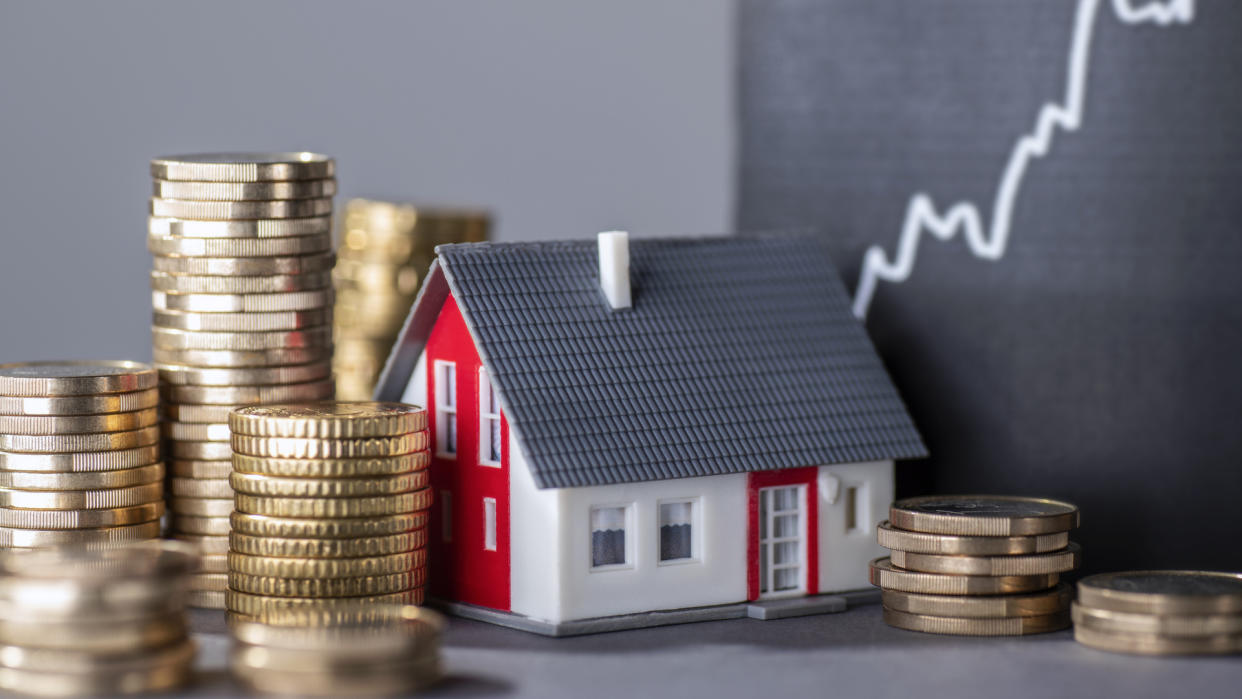Current Housing Market Exhibits ‘Classic Supply-Demand Imbalance’ — 3 Expert Takes on Ways To Prevent the Bubble From Bursting

Mention the term “housing bubble,” and you might conjure up nightmarish visions of 2008-2009, when the subprime mortgage crisis contributed to a crash that sent average U.S. home prices down more than 27% from their peak in 2006 to their low point six years later. Now there are fears that the same kind of pattern could be developing in the current market.
Housing Market 2023: The 10 Most Overpriced Housing Markets in the US — 5 Are in Florida
Discover: 3 Things You Must Do When Your Savings Reach $50,000
As CNN recently reported, the median price of an existing home has ballooned more than 46% in the space of only four years — from $278,200 in August 2019 to $407,100 in August 2023, according to the National Association of Realtors.
Housing Market 2023: These 15 Cities Are Poised for the Most Stable Growth and Are Likely To Keep Their Value
Although prices have stabilized somewhat in recent months, some experts still fear that the housing market has overheated to a point that is no longer sustainable.
“Talk about a bubble. That’s a classic supply-demand imbalance,” Sheila Bair, former head of the Federal Deposit Insurance Corp., told CNN.
Bair sees a similar “bubbly” housing market in 2023, driven by low mortgage rates early in the decade that contributed to heavy demand for homes and record high prices. Mortgage rates have since more than doubled to about 7.5% — their highest point in more than two decades, according to the St. Louis Fed — which could lead to a rapid slowdown in demand.
Meanwhile, foreclosure completions are up year over year, but new filings are down slightly, Forbes reported. Most experts don’t expect to see a wave of foreclosures in 2023 — partly because roughly half of mortgage-owned residential properties in the U.S. were “equity-rich” in the second quarter of 2023, according to ATTOM.
Is another popped bubble in the offing? It could happen — but there are reasons to believe it won’t. Here are three ways to prevent the bubble from bursting, according to experts.
Don’t Lend to Just Anyone
One of the main problems during the mid-2000s was that it was incredibly easy to qualify for a home mortgage. Home loans were approved for too many buyers with poor credit scores and little capital, and many ended up in foreclosure. One reason Bair doesn’t expect a repeat of that housing crisis is that not nearly as many homeowners are underwater on their home loans now.
As of September 2023, only 1.1 million homes, or 2% of all mortgaged properties, owed more on their mortgage than their home was worth, CNN reported, citing data from CoreLogic. During the sub-prime mortgage crisis, that figure peaked at 26%.
Mortgage lending standards are much stricter in today’s market.
“I see much less speculation in the housing market today, thank goodness,” Bair told CNN.
Don’t Oversaturate the Market With New Homes
One of the surprising trends in recent month is that despite rapidly rising mortgage rates, home prices have remained stubbornly high. This is mostly because of a limited supply of homes for sale.
“Supply is the issue,” Fannie Mae CEO Priscilla Almodovar told CNN. “There is no place to go. There is a lack of inventory.”
As long as supply remains limited — and builders don’t overdevelop — prices should drop at a more normal rate instead of crashing altogether. So far, builders have not been keen to ramp up new home inventory. Single-family construction starts fell 6.7% in August, Forbes reported, though applications for building permits inched up 2% from the prior month.
“There is not going to be a home price crash,” Lawrence Yun, chief economist at the National Association of Realtors, told CNN. “When you have a housing shortage, home prices simply cannot decline in any measurable way.”
There might be a temporary decline in prices, Yun added, but a “prolonged” drop of 10% to 15% “cannot happen in this tight supply market.”
Encourage a Bit of Deflation
Although homeowners might not like the idea, the housing market would benefit from a modest decrease in average home prices. Natural market forces will dictate that. However, if demand recedes, then buyers themselves can do themselves (and the market) a big favor by being more discerning about the amount of money they are willing to spend on a home.
“Letting that bubble deflate a bit would probably be a good thing,” Bair said. “For those who want to own, I hope home prices do come down.”
More From GOBankingRates
Florida's Retirees Are Fleeing: Here's Where They're Going Instead
Here Are All the States That Don't Tax Social Security Benefits
This article originally appeared on GOBankingRates.com: Current Housing Market Exhibits ‘Classic Supply-Demand Imbalance’ — 3 Expert Takes on Ways To Prevent the Bubble From Bursting
